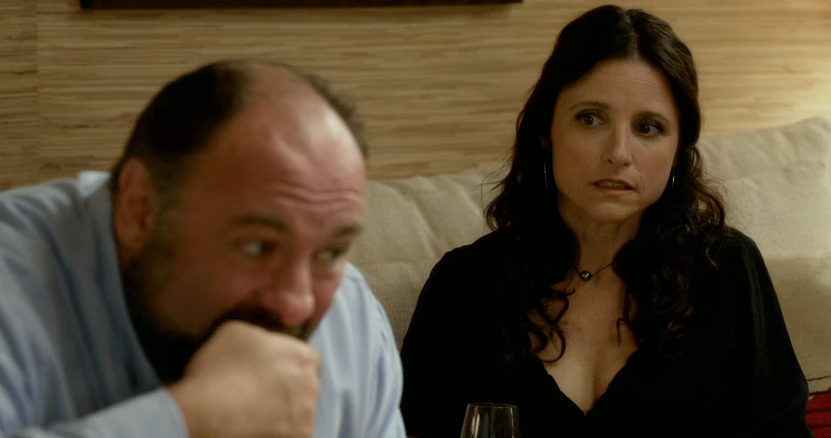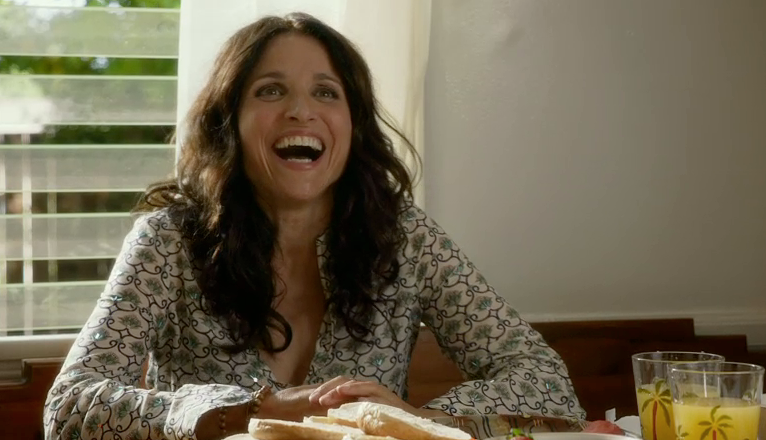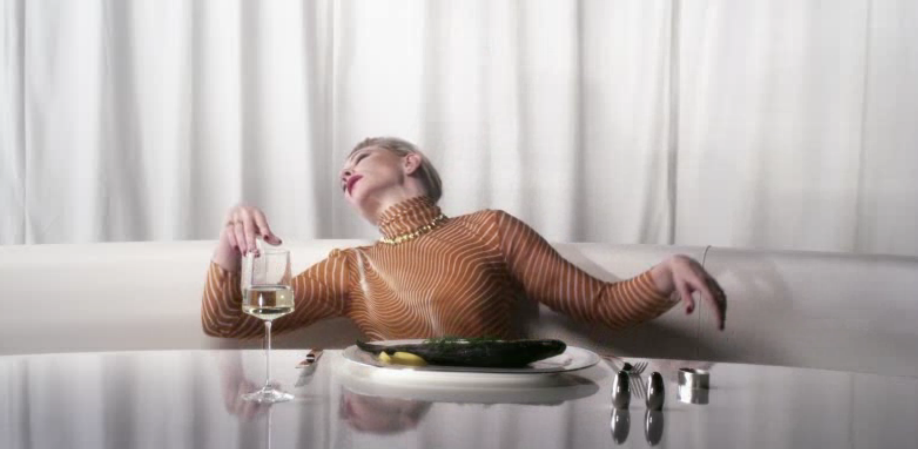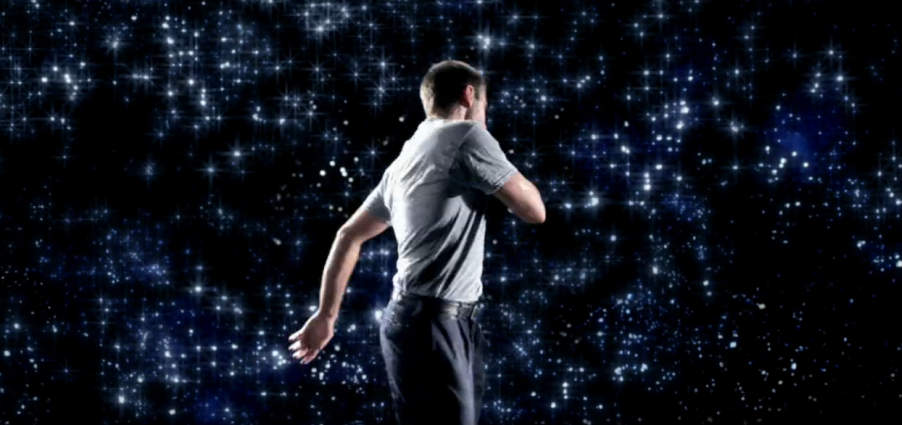Team FYC: Julia Louis-Dreyfus in Enough Said
 Saturday, December 14, 2013 at 8:26AM
Saturday, December 14, 2013 at 8:26AM Team FYC lets Film Experience contributors highlight their favourite fringe contenders for awards season. Here's David Upton on a sitcom star moving mediums.
Times have changed since George Clooney made the stratospheric leap into movie stardom after leaving ER. The avalanche of cable shows starring former box office headliners over the past few years have gone some way towards reducing the gulf between the two mediums. Julia Louis-Dreyfus currently plays her frantic neuroticism big on the small screen, as a harried, ambitious and fatigued vice president on HBO’s Veep. But she also side-stepped seamlessly into Nicole Holofcener’s big screen world of anxious, middle-aged, middle-class white women as Eva, a divorced masseuse in Enough Said. Next to the sharp, caustic wit of Armando Iannucci’s political sass, Holofcener’s script is a warmer, more delicate thing, and Louis-Dreyfus tones it down for the bigger screen.

While the more intimate focus of Enough Said makes for a more enjoyable, astute film than Holofcener’s recent ensemble films, it’s Louis-Dreyfus who gives the proceedings a different tone than the more bitter screen presence of Holofcener's usual leading lady Catherine Keener (in a supporting role this time). While Enough Said isn’t the type of film that calls for a star turn, Louis-Dreyfus shades Eva with her long-established persona without letting it overwhelm the film. Eva instantly makes sense as a character without being too familiar – it’s a delicate combination of persona and performance that’s much harder than Louis-Dreyfus makes it look. It’s a shorthand that she never uses as a crutch – instead, it’s a springboard she uses to etch deeper, more painful shades into Eva and her relationships with the other characters.
As ever, Julia is a generous screen partner. Her warm but nervy presence brings out new qualities in the people that surround Eva, particularly the vulnerable pride in James Gandolfini’s Albert. She aces the comic notes without making them gratuitous, instead making them organic to Eva’s neurotic, frazzled personality. JLD effortlessly gets both the size and shape of the film, she's at once luminous as its star and awkwardly humbled as Eva often feels; the emotional movements are gentle but feel seismic, because Louis-Dreyfus so openly makes Eva and the film inseparable entities. Enough Said feels so much lighter for her presence, but she assures that it lands its darkest moments with graceful power.
related post
Julia Louis-Dreyfus interviewed
 FYC,
FYC,  Julia Louis-Dreyfus,
Julia Louis-Dreyfus,  Oscars (13)
Oscars (13) 





